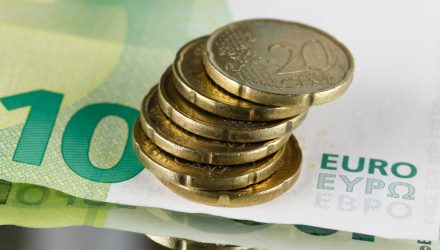More market observers are warming to European stocks, but some investors remain apprehensive about an asset class that long lagged against domestic equities.
Market participants can wade back into European equities with international exchange traded funds. Many of them are not dedicated Europe plays, and combine exposure to both developed and emerging markets fare. A prime example is the VanEck Morningstar International Moat ETF (MOTI).
MOTI, which follows the Morningstar® Global ex-US Moat Focus Index, isn’t a dedicated Europe fund. It’s truly international in that its 71 holdings hail from nearly 20 countries — both developed and emerging economies. Still, the $223.9 million fund features a fair amount of Europe exposure, a potentially compelling trait going forward.
MOTI Has Tactical Advantages
Following the recent collapse of Credit Suisse, investors are right to ponder the health of European banks. Fortunately, some market observers believe European banks are healthier than their U.S. counterparts. This is partly because European banks hold fewer rate-sensitive fixed income instruments.
“But last year was historically bad to own bonds because interest rates rose very rapidly – just when US banks owned far more bonds than normal and much more than European banks. So they have large unrealised losses on those bonds. In the US, there is less capital backing lending than normal. That might be a little constrictive for the US relative to Europe,” noted BNP Paribas.
Another potential longer-ranging advantage for MOTI is that Europe is one of the world’s most forward-thinking regions when it comes to climate investments, which is coupled with the ETF’s 28.13% weight to China — the world’s biggest renewable energy spender. MOTI has credible sustainability inroads, although it’s not a dedicated sustainable fund.
“Sustainability tends to require large investments over a long period. For many European companies, this is significantly accelerating their growth rate,” added BNP Paribas. “As an example of doing the big things well, the global leader in renewable fuel is a European company that used to be an oil refiner. Now it takes food waste such as used cooking oil and animal fat waste and turn it into diesel fuel.”
Chinese demand for clean tech, electric vehicles and other emerging tech is also viewed as a boon for European semiconductor firms, several of which reside on the MOTI roster.
“We think this can be a boost to growth over the next year because companies in Europe have been generally relatively conservative in the way they’ve been forecasting the opportunity, but they’re starting to see more signs that business is picking up,” concluded BNP Paribas.
For more news, information, and analysis, visit the Beyond Basic Beta Channel.
The opinions and forecasts expressed herein are solely those of Tom Lydon, and may not actually come to pass. Information on this site should not be used or construed as an offer to sell, a solicitation of an offer to buy, or a recommendation for any product.







